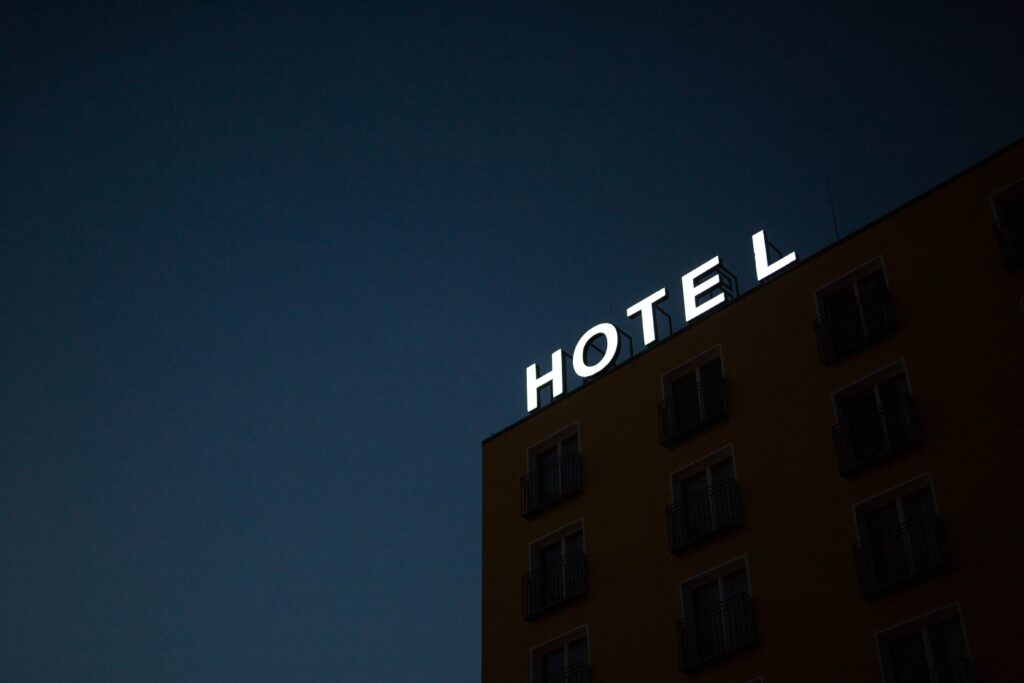A facility that offers short-term paid lodging is known as a hotel. To help guests find their rooms, hotel rooms are generally numbered or named in certain smaller hotels. Some premier and affluent hotels feature specially designed rooms. Let’s know what is the main function of a hotel.

The efficient running of hotels requires the cooperation of several departments to successfully serve a big number of guests. Each department plays a crucial role in ensuring that visitors have a pleasant stay. Finding out more about the many departments in a hotel can give you the chance to think about careers in each specialty if you’re interested in a career in the hospitality sector. In this post, we talk about the main function of a hotel and some of the functions of certain hotel departments.
What is the main function of a Hotel?
Providing lodging rooms for visitors is the main function of a hotel. There are various types of hotels from basic lodging alternatives for tourists and business travelers like inns and motels to sophisticated luxury complexes like resorts, spas, and convention hotels.
Main Hotel Departments
Hotels may have various divisions, depending on their size and the services they offer. Compared to hotels with fewer guest amenities, large luxury hotels frequently include additional departments with specialized functions. Due to low demand, small hotels may also consolidate the duties of various departments. The following are some typical departments that you can find in various hotels:
- Housekeeping
The hotel’s housekeeping department is responsible for the upkeep of the hotel’s state, cleanliness, and hygienic conditions. The housekeeping crew establishes a schedule for cleaning each room in between bookings, changing the linens, doing laundry, taking out the garbage and dishes, making beds, and restocking rooms with supplies to keep the place tidy and welcoming.
- Customer services
When a guest makes a reservation at the hotel, they first get in touch with the front desk, also referred to as the customer services department. The department is also in charge of responding to existing hotel guests when they need assistance. The customer services department plans to welcome visitors upon arrival, activate guests’ room keys, and transport luggage to their rooms in addition to informing potential guests about the costs of the hotel’s rooms. Employees in the customer services department also tell visitors about the hotel’s amenities and available things to do while they are there.
- Finance
The hotel’s account department usually referred to as the finance department or the credits department, is in charge of keeping track of all incoming and outgoing expenses. Members of the accounting division keep track of all financial activities, including unpaid invoices from partners in business and unpaid balances from guests. Making budgets, checking ledgers, preparing financial reports, sending bills, and designing processes to avoid financial problems are all part of the accounts department’s duties. Employees in the hotel accounts divisions might deal with a variety of transactions, such as payments to suppliers, and taxes.
- Security
Hotels often include a security department because guests want to provide them with a secure atmosphere so they can enjoy their stay. The hotel’s security division protects the clients and their properties. Security personnel at a hotel conduct routine patrols of the vicinity to look for any unusual activity or potential dangers. To maintain a secure atmosphere, security personnel make sure that everyone who enters the hotel grounds is a guest. They are also in charge of responding when visitors or staff need assistance or report problems.
- Food and drink
Meals are prepared by the food preparation department and then delivered to hotel guests by the food and beverage service department. In hotel restaurants, cafes, and bars, the food, and beverage service department ranks among the top departments. They offer rapid customer service by carrying customers’ orders to them or delivering room service orders. Employees in the food and beverage department can also set up catering orders, clean dishes, and clarify menu items if consumers have any questions.
Conclusion
The main function of hotels is to give travelers a place to stay, food to eat, refreshments to drink, and other similar services and goods. They do this by commercially providing items that are typically furnished in homes but not available to people traveling away from home. In the past, hotels have also served a variety of additional purposes, including locations for business meetings, social gatherings, public forums for debate, showcases for décor, bases for political administrations, destinations for vacations, and permanent dwellings. The creation of the hotel and the hotel business revolutionized travel in America, accelerated the settlement of the continent, and increased the reach of urban culture.
Frequently Asked Questions
- Who is referred to as a hotel front desk employee?
Responsibilities of a receptionist include guest registration, credit check processing, cashier work, room assignment, mail and message delivery, and key control. The term “front desk” is frequently used in hotels to refer to this administrative area. Many times, front desk clerks are used to describe such receptionists.
- What is the hotel’s primary purpose?
Hospitality! The hospitality and tourism industries include hotels as a significant component. As a result, a hotel’s primary goal is to make its visitors’ stays delightful by attending to all of their demands and needs.